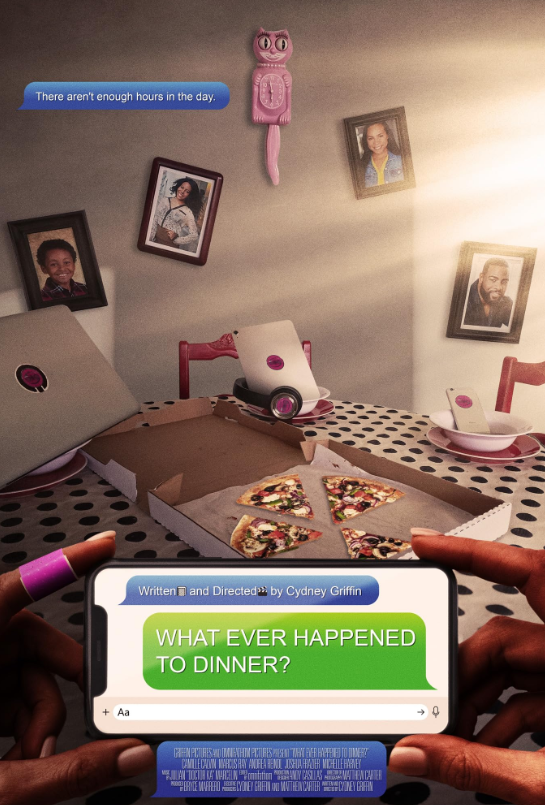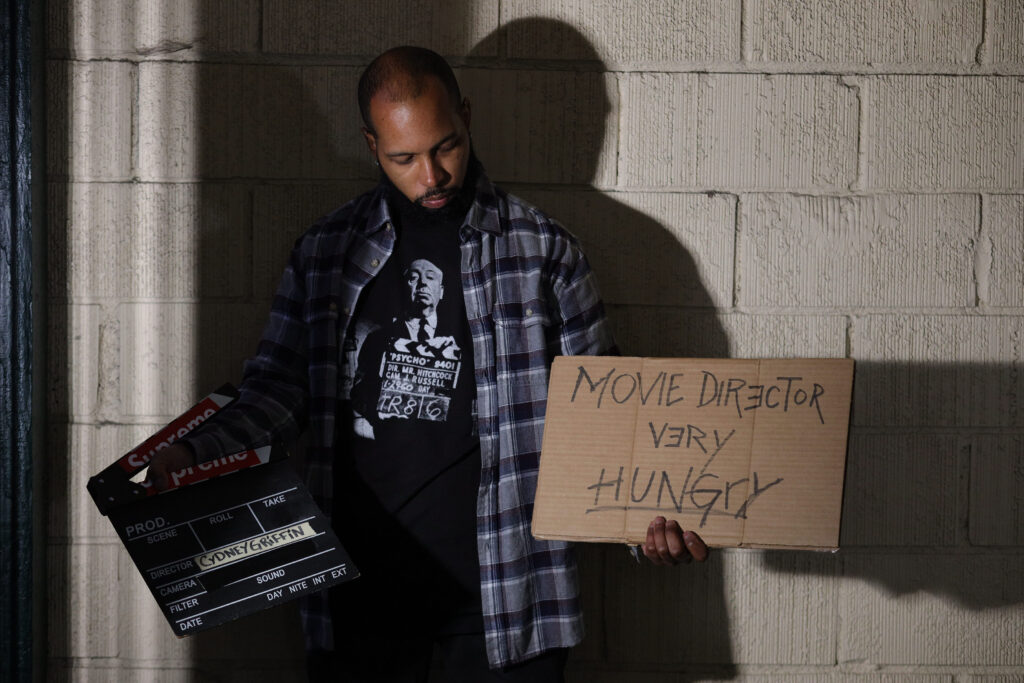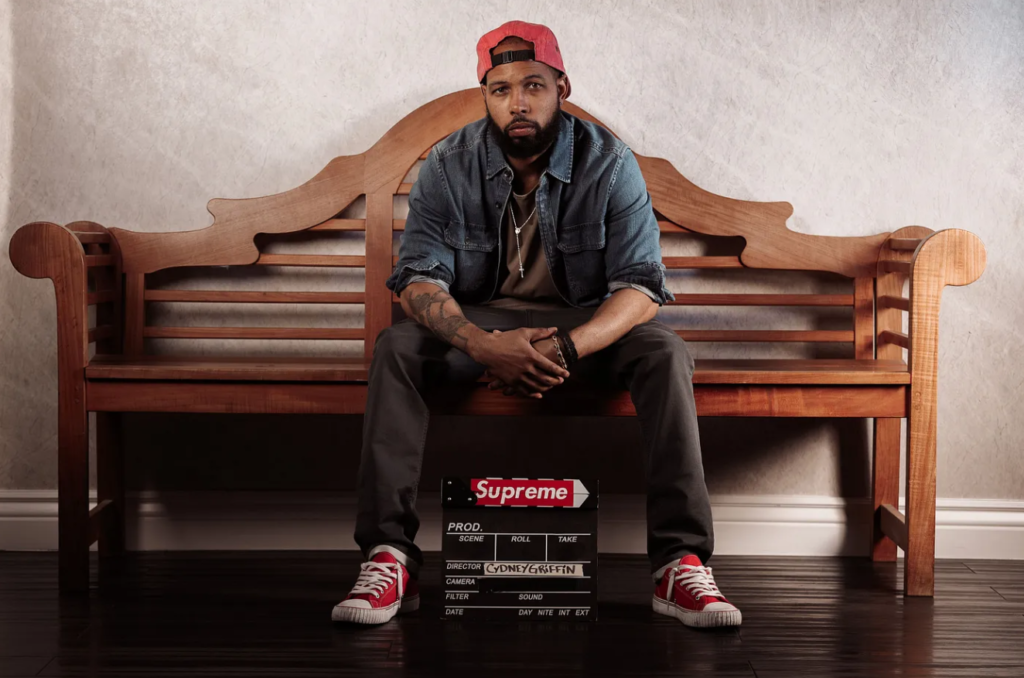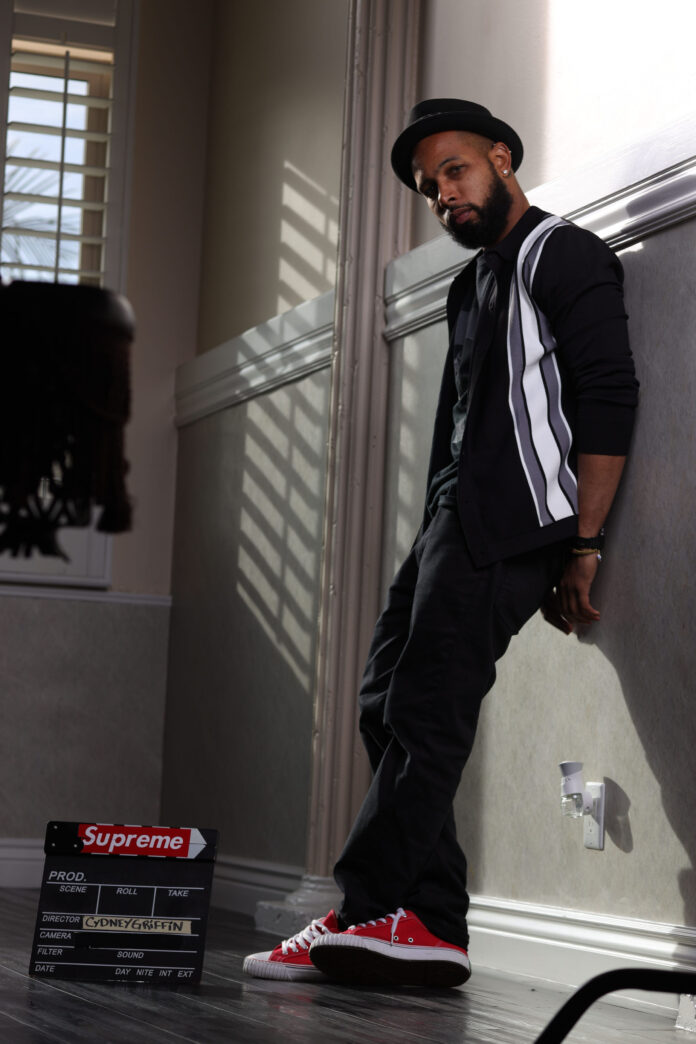( ENSPIRE Entertainment ) Griffin On His Journey As A Creator and His Debut Feature Film, “Whatever Happened to Dinner?”
ENSPIRE Contributor: Daniel Garritson
Cydney Griffin is a screenplay writer and director from California. He graduated from California State University with a degree in Narrative Production in 2013. As an artist, he shows a passion for character development and story structure. Beyond just creating high-quality films, Griffin is seeking to actively make the world of pop culture in the US more diverse. His stories thread the needle between relatability to a general audience and introducing underrepresented people and themes to the public consciousness.
Cydney’s feature film debut, “Whatever Happened to Dinner?” demonstrates this passion for accessible themes in storytelling. The story is something that anyone can understand and relate to. He independently funded his film, which took seven years. The film is shot similarly to a stage play, using primarily character dialogue to convey the intergenerational conflict that the story focuses on.

We spoke to Griffin about his background, his creative process, and his plans for the future.
How old were you when you knew you wanted to be a storyteller and filmmaker?
Signs were all around me that pointed me in that direction, I just didn’t piece them together until later in life. My third-grade teacher told me how good a writer I was in comparison to my peers, and writing was always something I enjoyed.
I was also a projectionist at the Gardena Cinema movie theater as a teenager. This gave me a front-row seat to learning film grammar and visual literacy. But it wasn’t until I got to film school that I knew I could be a movie director if I put in the work to make that dream a reality.
Anybody that doesn’t have work behind their record is full of crap–don’t trust them. The work you put in will build the strength you need to sustain in this industry.
Would you say you have one single greatest inspiration or motivation behind your filmmaking?
My motivation is to tell stories – the stories I want to see are what drive me. I’ve said many times, my experiences in life are what I enjoy writing about. Writing is a creative outlet, and it’s what I plan on doing for the rest of my life.

What is something you wish you could go back in time and tell yourself when you first started down this life path?
START EARLIER. If you can, start right now, while you’re still reading this! For the love of God, start working on it now. There’s a saying, ‘In life, you only have time to get good at one thing.’ Once you realize what you’re supposed to do in life – and most people never even get that far, you want to learn as much as you can as fast as you can.
But it doesn’t work like that. Art is more about programming yourself to see the world through the perspective of your art form. It’s your job to live your art all the time so you can take real-life situations and emotions, and translate them into your art. The earlier you start, and work on your art, the more you can do in your lifetime–read this interview first…then get after it.
How impactful do you think your specific cultural background was to the way you told the story in What Ever Happened To Dinner?
Culture is a delicate subject. My biggest fear is coming off heavy-handed and punching the audience in the face with propaganda that outweighs the story I’m trying to tell. With that in mind, I can say the way I grew up – good or bad – has shifted my perspective, in the same way it affects you or your neighbor. Culture and a person’s environment always play a part in the lives of us all. My movie at its theme, deals with situations we can all understand if placed in them.
Can you describe what an average day looked like while you were still working on a film set?
This was the first movie I ever directed. The first day, I was scared out of my mind. It was not until day five or six that my crew and I developed a rhythm. Learn how to ask for advice without looking like you don’t know what you’re doing. If you prepare beforehand, the shoot should flow smoothly.
All you can do is what is required of you, this is when trust for your crew comes into play. It’s your movie, how you put it together is your vision, so take control of it. David Fincher says, ‘Control everything because if the movie ends up bad it’s on you, anyway.’ Also, take everything one step at a time.

In previous interviews of yours, you have talked about the difference between ‘survival work’ and ‘development work.’ Can you break down these concepts for our audience?
YES! I’m glad you mentioned this. I think about it a lot and I am always placing the work of myself and others into these two categories. A simple way to break it down would be the difference between ‘responsibility’ and ‘developmental’ work.
Responsibility Work is the work you HAVE to do. Work we do to maintain our life so we don’t fall behind. Example: The mundane nine-to-five that allows us to pay rent, put food on the table, and send the kids to college. We work to take care of these things but growth and success will never come from them, because this work is the baseline/ bare minimum that we must do to keep what we have. Now, if your version of success is staying right where you are -congratulation, more power to you – why are you even reading this interview?
Developmental Work, the work we do to get ahead, what we do to achieve growth in our lives, and what I’m doing right now regarding my film career. The hardest part about this kind of work is that it’s completely voluntary–we don’t have to do it. After a hard day of work, you don’t have to go to the gym; you don’t have to save for that dream house; you don’t have to write that script; you can go home, sit on your ass, drink, smoke, and stream your life away.
This is why so many of us fall into the quicksand of the mundane. The trick is to break this work down into bite-size pieces and commit to doing a little bit every day. AND NEVER GIVE UP! But be warned, if you’re one of those people that try to slide Responsibility Work into the category of Developmental Work, you’re just playing yourself. I always run into confusing parents who tell me ‘raising kids’ is my ‘developmental work,’ Please. Don’t.
Raising kids is your responsibility, but aiming for a goal and working with your child to make sure they reach it; that’s development. The parents of Tiger Woods ‘raised him,’ the parents of Michael Jordan and Venus and Serena Williams ‘raised them.’ But as we know, there’s more to it than just raising a child verse guiding them toward something.
Do you have any upcoming projects that the ENSPIRE audience can look forward to?
I have written a movie based on a Tupac song. I’m currently shopping it around now. I’m outlining a Western that takes place during the civil war. And I’m also writing a movie about a boy avenging his murdered father that takes place in south-central late 80s early 90s.
It’s apparent that Cydney Griffin has the potential to be the next big thing, and the drive to realize that potential. There is much to look forward to in the future from this up-and-coming director. A trailer for his debut film Whatever Happened to Dinner? can be found here. Both he and the film have Instagram pages.
Related Articles: Black Public Media Launches AfroPoP Digital Shorts Series, ALLBLK Greenlights A La Carte Season 2







